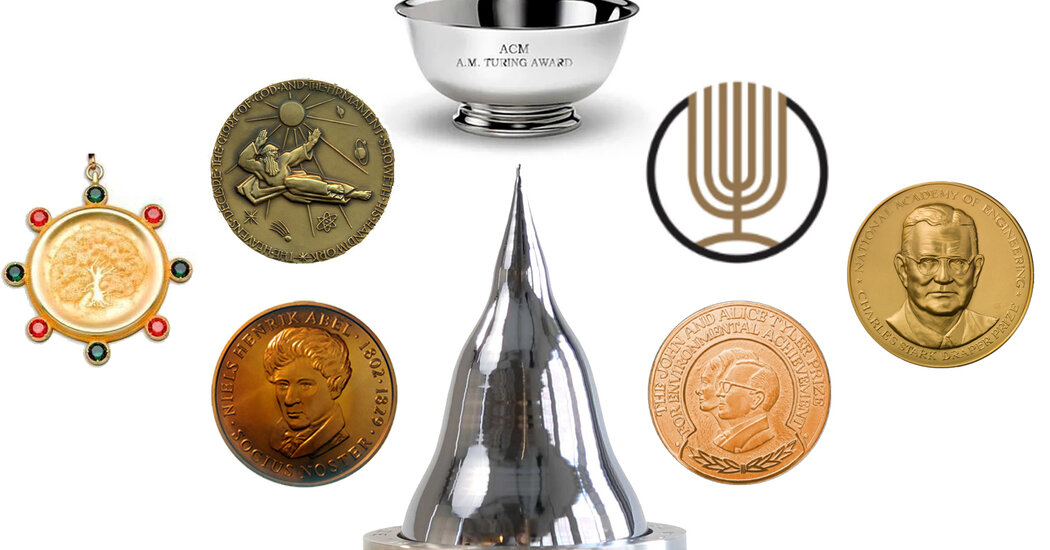The Nobel Foundation offers prizes in only three disciplines, but other awards have been created to honor scientists in different fields.
Every October, scientists eagerly await the announcement of the Nobel Prizes in physics, chemistry and medicine. But many researchers outside of those fields may miss out on opportunities for the international acclaim that comes with being named a laureate of the Nobel, the most prestigious award in science.
Many have argued for an expansion of the Nobel categories, especially because science has grown increasingly interdisciplinary since the prizes were established in 1900. But it has yet to occur. In the meantime, awards have popped up to honor excluded fields.
Below are nine prizes that scientists and mathematicians who may never earn a Nobel can look forward to.
The Abel Prize for Mathematics
Established in 2002, the Abel Prize awards 7.5 million Norwegian kroner, or about $700,000, annually to a mathematician with “pioneering scientific achievements” in the field. It is named after Norwegian mathematician Niels Henrik Abel.
In March, the Norwegian Academy of Sciences and Letters named this year’s Abel laureate as Michel Talagrand of the National Center for Scientific Research in France for his work on understanding randomness in nature.
Only one woman has won the Abel Prize: Karen Uhlenbeck, a University of Texas mathematician, in 2019 for her work on geometric analysis.
